What are the signs of a brain attack?
What are the signs of a brain attack?
One of the most typical symptoms is dizziness, lightheadedness, headache, blurred vision, often accompanied by heartburn, tinnitus, irritability, insomnia, poor concentration, forgetfulness and other emotions.
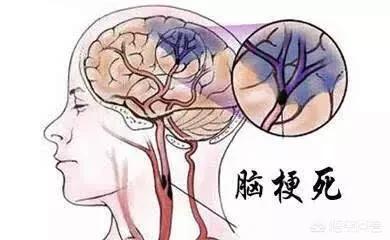
One of the precursor signs of cerebral infarction:Sudden dizziness is one of the most common precursor signs of cerebral infarction.Can occur at any time of dayIf the dizziness persists for 1 to 2 days, especially in patients with high blood pressure, cerebral infarction or cerebral hemorrhage is likely to occur.
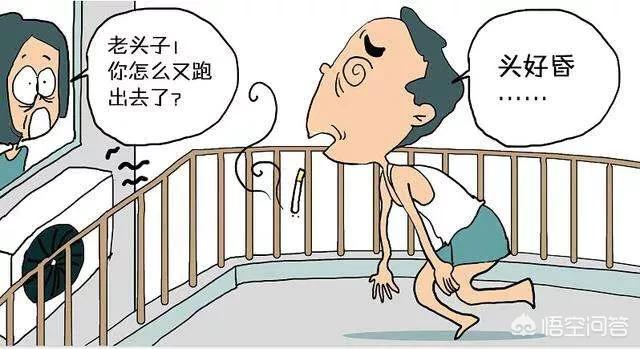
One manifestation of cerebral infarction that often occurs during sleep or quiet time is the following: slurring of the mouth on the face, weakness or numbness of the limbs, head tilted to one side, hemiparesis of one limb or hemiparesis of a single limb.

A patient with a history of traumatic brain injury who suddenly develops a severe headache.And there is difficulty in swallowing, nausea and vomiting, slurred speech, accompanied by drowsiness, and in severe cases, coma soon, if one of the above symptoms.You should go to a regular hospital for follow-up examination and treatment as early as possible.
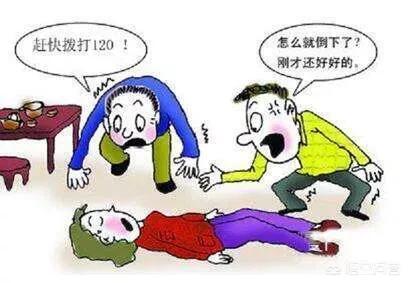
Cerebral tethering may have occurred in a patient with a history of hypertension who experienced an abnormal increase in blood pressure to 200 to 120 followed by an abnormal decrease to 80 to 50.
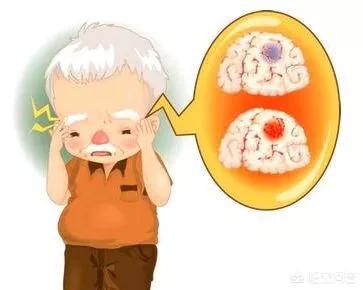
Cerebral infarction, also known as stroke and cerebral stroke, affects about 2.5 million people every year in China, so it should be recognized in advance, detected early and treated promptly.
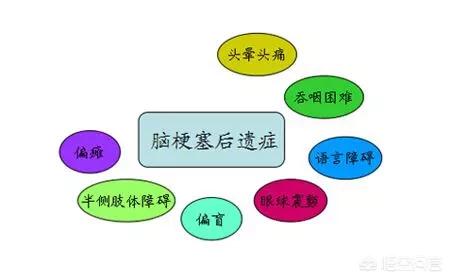
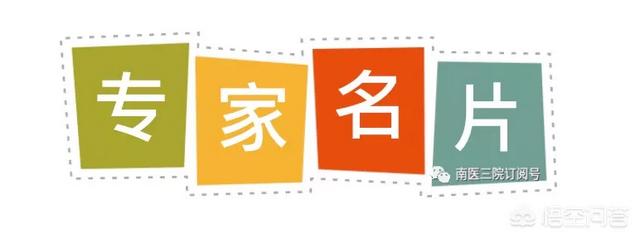
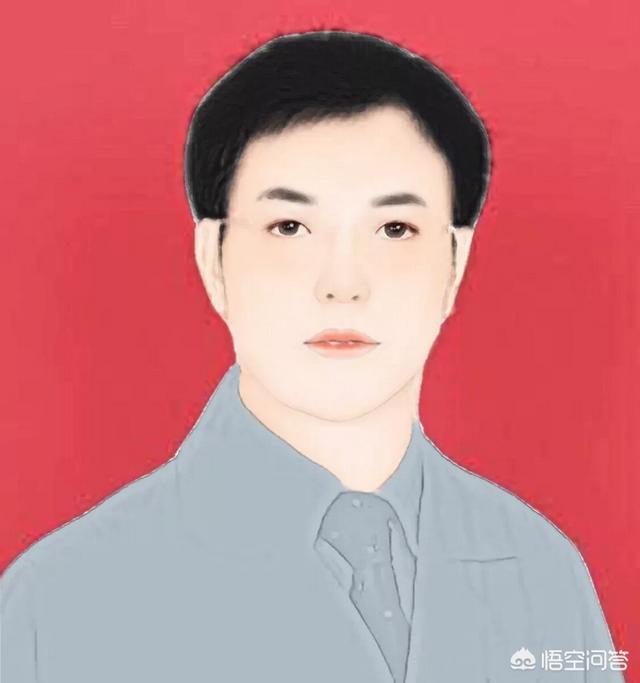
Huang Lijin, M.D., R.M.S., Chief Physician, Neurosurgery Department, NMSUHe specializes in the diagnosis, interventional therapy and microsurgery of cerebral and spinal cord vascular diseases, microsurgery of intracranial tumors and spinal cord tumors at the base of the skull, surgery and treatment of severe craniocerebral injuries, and microvascular decompression of facial muscle spasm and trigeminal neuralgia.
SCMS Divine Surgery Cabbage.
Thank you. Cerebral infarction is the popular term for "stroke", which has been abandoned in favor of "stroke".
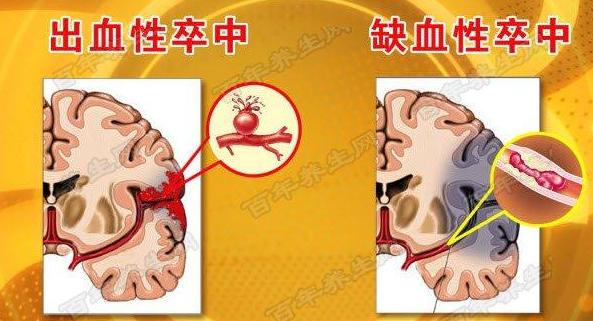
Stroke includes ischemic stroke and hemorrhagic stroke.Cerebral infarction, on the other hand, is an ischemic stroke.It is an obstacle to the blood supply to the brain, where ischemia and hypoxia cause necrosis and softening of the brain tissue, resulting in neurological dysfunction.
1. Infarcts of small foci, such as cavernous cerebral infarcts occur according to the different parts of the infarct.Patients may experience dizziness, headache, nausea and vomiting。
2. In case of massive cerebral infarction.Hemiparesis, aphasia, and in severe cases, life-threatening.。

A small action to help you prevent brain attacks
Shrug: shoulders up, slow relaxation, repeated for 5 minutes, 1 time in the morning and 1 time in the evening. This action can provide power for the carotid artery blood flow into the brain, increase the speed of blood flow, reduce the cerebrovascular blood supply and the occurrence of cerebral infarction.
For more health-related knowledge, please follow the headline: "Health Insiders", so that you can understand the things you must know about health.
Frequent vertigo and headache may be the precursor of cerebral infarction, but we cannot exclude the possibility of other diseases, such as cervical spondylosis compression of the vertebral artery, otoliths and so on, so we need to have a correct understanding of the symptoms as well as cerebral infarction!
Symptom Recognition: Are You Vertigo or Dizziness?
Clinically, dizziness and vertigo are both common symptoms, but as patients, many people are unable to distinguish them and are prone to getting them wrong!
The feeling of vertigo: simply understood as a sense of heavenly rotation, manifested in episodes, but the objective and non-existent self and the surrounding environment in a certain direction of rotation, drifting or tumbling feeling.A lot of vertigo is actually caused by vestibular dysfunction, such as benign paroxysmal positional vertigo, i.e., otolithiasis, but it is closely related to positional changes, especially with positional changes such as going from prone to seated, sudden episodes of vertigo occurring that last for a few seconds to a few minutes and then resolving on their own!The symptoms of dizziness, on the other hand, are relatively mild compared to vertigo, and are characterized by confusion, a feeling of drowsiness in the head, swelling and pain in the head, and the absence of a spinning sensation!There are more causes, and dizziness can be caused by anemia, postural hypotension, functional brain disorders, and systemic systemic diseases.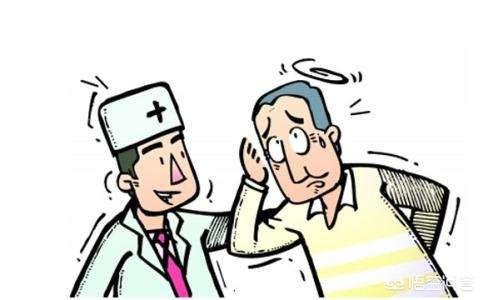
So.Frequent vertigo is not certain to be a precursor to a cerebral infarction, except to say that vertigo may also occur in some brain disorders, and that vertigo in a cerebral infarction is more often sudden, and that dizziness may be the more prevalent symptom!
So what are the signs of a brain attack?
In fact, most of the patients with cerebral infarction come onset is very sudden, sometimes it is too late to prevent, and once the cerebral infarction is particularly harmful, either death or paralysis!It also stems from the fact that most cerebral infarctions do not have a clear precursor, whereas progressive cerebral infarctions, those in the brainstem or cerebellum, will have some precursor.The main manifestations are dizziness, transient immobility of the arms and legs in favor of the body, which lasts for a short period of time, but will recur. However, some patients with cerebral infarction also have transient ischemic attack, which is manifested as patients suddenly feel weak in arms and legs.The weakness of the hands and feet recurs after a few minutes, however, it does not take much time. When this happens you should also pay attention, should be vigilant, timely exclude the development of cerebral infarction may!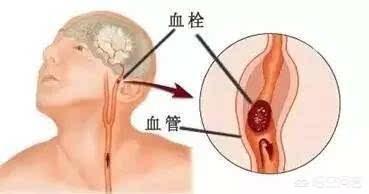
In fact, it is equally important to be aware of the risk of cerebral infarction when you have the following conditions in your life!
- If there is sudden blindness or a sudden difficulty in seeing, followed by rapid relief within a short period of time, it may be due to thrombosis of the internal carotid artery;
- Sudden episodes of vertigo, tinnitus and headache, along with nausea and vomiting, and unsteady walking, may be a result of inadequate blood supply;
- Episodes of slurred speech, with hard, numb tongue; episodes of numbness and weakness of half the body, with drooling;
- Slurred consciousness or drowsiness, sometimes sudden inability to name objects, significant memory loss, etc;
- There is also a sudden change in the nature of your original headache, from paroxysmal attacks followed by relief to persistent unremitting headache, severe headache, also accompanied by nausea and vomiting!
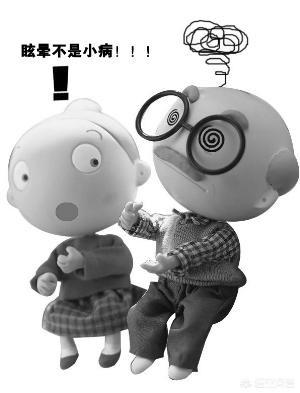
There are some typical signs of cerebral infarction that can help us recognize, such as physically, hands and feet keep shaking, shivering, staggering, unsteady, weak, facial twitching, and so on, and then serious, but it is a coma, unconsciousness, this serious but typical symptoms but make it easy to judge, pay attention to it, and timely treatment.
But there are also some symptoms that are so atypical that they are easily overlooked. A few days ago around a real event, A is a certain hospital photographer, the hospital in the activities he routinely go over to shoot, but A's colleagues B found him a little bit wrong, for example, although A spoke clearly, the logic is completely chaotic, there is a kind of preamble, don't know what they are talking about the feeling of sensitivity B realized that this is not right, and told the doctor who was sitting next to him, C, C is a neurosurgeon, professional sensitivity made him immediately pay attention, he called A and asked him a few questions, such as pointing to his colleagues and asked who are these. C is a neurosurgeon, professional sensitivity let him immediately pay attention to, he called A asked him a few questions, such as pointing to colleagues to ask who this is, I did not expect A even usually get along with the leader's name can not recall, until 20 minutes this burst of energy to slow down the past before remembering. After asking a few more questions, Dr. C decided that A was in the early stages of cerebral infarction. Immediately drove him back to the hospital for an MRI.
Sure enough, A is cerebral infarction super early, because the symptoms are still relatively mild, after first aid treatment, a few days after the recovery is not bad, if no attention is paid to, let the symptoms found, hemiplegia, paralysis, and even loss of life ...... consequences dare not envision.
Here's a reminder that tiny counterintuitive symptoms should also be taken seriously!
In general medical terms, the sign of a brain attack is a transient ischemic attack;
1) Sudden onset of poor speech, or unclear speech;
2) Speaking out in a way that others don't understand, or can't understand what others are saying;
3) Or sudden hemiparesis on one side, with both hands raised high and how one hand cannot be raised;
4) The face appears crooked and the corners of the face and mouth appear crooked;
5) Generally this may be around 10-20min hours, this is generally known as a precursor to a cerebral infarction.
Thanks for the invitation to Wukong Q&A!
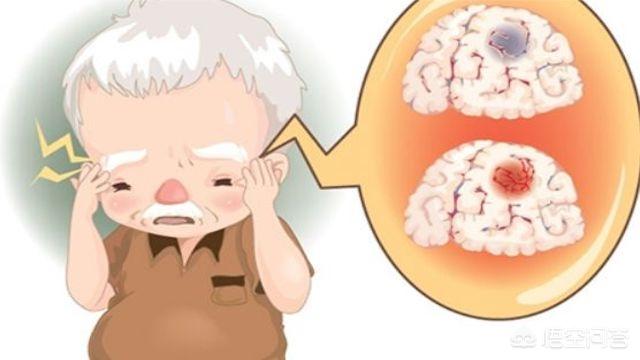
"Cerebral infarction" is the abbreviation of cerebral infarction, belongs to ischemic stroke, is a more common clinical neurological emergencies, due to the majority of patients with cerebral infarction will be left with varying degrees of neurological deficits in the symptomatic, so its effective prevention and ultra-early treatment is particularly important. Mention of prevention many people think that for some of the aura before the onset of early treatment has a preventive effect, which has some truth, but not comprehensive, this question is interested in the aura of cerebral infarction, the following elf doctor will analyze the answer for everyone.
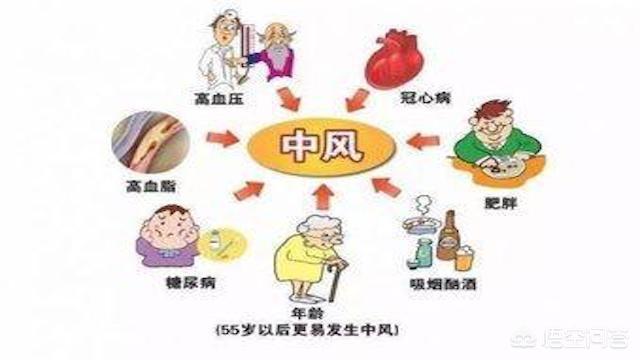
The aura of cerebral infarction is not a rigorous scientific concept, and can be divided into two concepts from the medical point of view, one of which is risk factors; the other is pre-symptoms. The former has a longer interval with the onset of the disease, with the increase of risk factors can increase the probability of cerebral infarction, at present, the risk factors of cerebral infarction include: hypertension, diabetes mellitus, hyperlipidaemia, obesity, smoking, etc. The latter is relatively close to the onset of the disease. The latter is relatively close to the onset of the interval, clinically there is a special name for the disease, called transient ischemic attack, which can be caused by different symptoms, such as: limb weakness, dizziness, aphasia, etc., most of which will be relieved within 24 hours, if not treated in time will be recurrent, and ultimately develop into cerebral infarction.
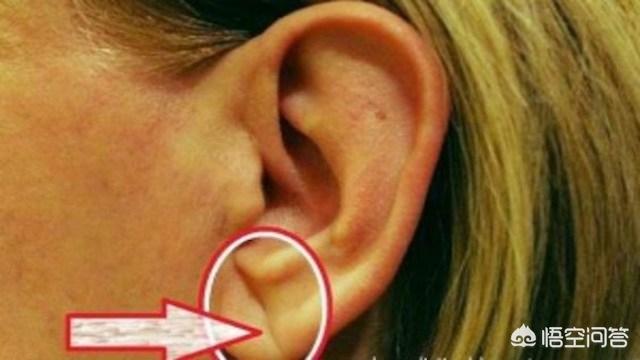
It is important to note that not all cerebral infarctions are associated with transient ischemic attacks, and therefore most prevention of cerebral infarctions is aimed at those with associated risk factors or those who have already had a cerebral infarction. There is no direct causal relationship between the pleats on the earlobes and cerebral infarction mentioned in the question, which itself is related to aging and dyslipidemia of the human body, so both of them may be the result of a common series of causes rather than mutual causation, and as a result of the common causes, there is the problem of the development of the time quickly or slowly, and it is not that a certain item necessarily occurs in advance, so there is a lack of scientific basis to use it as a precursor of cerebral infarction.
What's a brain attack? In my childhood days it was called: Stroke.
Nowadays, children are busy at work, most of the elderly are living alone, no children with bad mood, their own work damage to the spine, diet is not pay attention to, so the probability of suffering from cerebral infarction is much higher than before, but this is not to say that young people will not suffer from cerebral infarction, on the contrary, cerebral infarction of the trend of the younger and younger more and more obvious, so young people must be more vigilant.
Once suffering from cerebral infarction, it is very difficult to fully recover, so here to remind everyone, if you don't want to get this disease, you must prevent it as early as possible, and learn more about medical knowledge in this area, so as not to regret in the future!

What exactly are the signs of a brain attack to look out for?
1, if you find that the family began to appear crooked mouth, can not speak clearly, when sitting is partial, walking began to be less stable, you must pay attention to, this is very likely to be the early symptoms caused by cerebral infarction, once these conditions found, it is recommended to send to the hospital in a timely manner for examination, so as to achieve the early treatment of early peace of mind.
2, the eyes appear blurred, can not see things, do not still stupidly think it is presbyopia, to know that see things unclear is an important signal of cerebral infarction attack.
3. Weakness of limbs and insensitivity of hands and feet. Although it is true that when you get older, you may have difficulty moving, but if sometimes the things you hold in your hand suddenly fall, and this phenomenon is getting more and more serious, it is very likely to be ischemic phenomenon triggered by cerebral infarction.
4, unhappy mood, always lose their temper. Don't underestimate this, if the patient is suddenly not interested in anything, and become irritable, poorly expressed time should also pay attention.
5, sleep more than usual, and always yawn, rest for a long time or so. In fact, this is also a precursor symptom of cerebral infarction, indicating that the disease is about to attack, it is best to go to the hospital in time to check.
The above mentioned factors are the precursors to the occurrence of cerebral infarction, I hope that everyone can have this kind of preventive consciousness, do not wait until the onset of the disease only to begin to regret, begin to feel sorry, then what's the use of it ah?
PS: In our daily life, we must pay attention to the problem of cerebral infarction, early prevention to prevent it from happening.

(This article was originally written by Prof. Luo Min. Some of the pictures in the article are from the Internet, if copyright is involved, please contact me for deletion. If you have any questions, welcome to leave a message at the end of the article, private chat contact, common discussion. (Follow the author of this article to get more medical knowledge, welcome to like, comment, reproduced, common progress)
Hello, I'm licensed pharmacist yang, I'll answer your question "What are the symptoms of cerebral infarction ah life?" I'm here to answer your question, "What are the symptoms of a cerebral infarction?
First of all, what is the concept of cerebral infarction?

Cerebral infarction is caused by necrosis of part of the brain tissue due to cerebral ischemia, hypoxia and severe hypoglycemia, and causes persistent focal neurological dysfunction. Ischemic cerebral infarction is the most common, and part of the area of the fresh cerebral infarction is swollen, soft, and pale in color. If there is plaque-like hemorrhage in the infarcted area, it is called hemorrhagic cerebral infarction, which is mostly caused by arterial embolism, venous obstruction and the use of anticoagulants to treat cerebral infarction.
The clinical manifestation of cerebral infarction is the neurological focal symptoms caused by the loss of neurological function in the region of cerebral infarction. If the scope of cerebral infarction is large and accompanied by cerebral edema, it will cause the symptoms of cranial hypertension, and even lead to the formation of cerebral hernia, and the pressure of cerebrospinal fluid may be normal or increased, and the composition of cerebrospinal fluid is generally normal. If the cerebral infarction is hemorrhagic, the cerebrospinal fluid contains more red blood cells.
What are the symptoms of a brain attack in life?
There are many symptoms of cerebral infarction, because the function of our brain tissue is very complex, so cerebral infarction damages different parts of the body, his symptoms are different.
The details are as follows:
1. Cerebral infarction damages the area that is responsible for the movement of the arms and legs, which we call the corticospinal tract, and the symptoms of hemiparesis may appear;

2、If it involves the place that governs the sensation of our limbs or the whole body, which is called the spinal thalamus tract, he may have dysesthesia, numbness, pain or hypesthesia in the hemisphere;
3. When the language center is involved, what may be affected is the loss of language function, and the loss of language function includes motor aphasia, and the patient may have difficulty in finding words, and when he wants to say this sentence, he may not be able to find the words to say it, or he may not be able to speak at all;
4. If sensory aphasia is present, the patient may not be able to understand others, but he may be able to understand body language and written language;
5. There may also be some naming aphasia, such as a certain item, he knows how to use it and what it is for, but he can't say it, for example, if he you take a pen to him, he may not be able to say the word pen, but he knows that the pen is used for writing;

6、Involved in some of the places that govern our balance function, there may be some balance disorders, maybe the patient's hands and feet are strong, but he can't walk, can't walk steadily;
7. It may involve some nuclei, such as some vestibular nerve nucleus damage, there may be very obvious dizziness, nausea, vomiting; if it involves the facial nerve, he may have facial paralysis;
8. If it involves the area where the tube eye moves, he may develop ptosis or diplopia and other such symptoms.
Once the above symptoms appear, immediately consult a doctor to determine whether it is an acute cerebral infarction and how it needs to be treated, so as not to delay the condition.
These are all my answers to this question, and I hope they can help you.
Does a brain attack give "notice" of its arrival?
In recent years, more and more people have suffered from sudden cerebral infarction. The disability and mortality rates of cerebral infarction are very high, and once the disease develops, it will be very dangerous, and unfortunately, 48-year-old Mr. Liu is one of them.
Two days ago, 48-year-old Mr. Liu is eating breakfast, accidentally dropped the chopsticks on the ground, stooped to pick up, found his right limb does not obey, the right side of the body suddenly numb, chopsticks did not pick up, the person fainted on the ground.
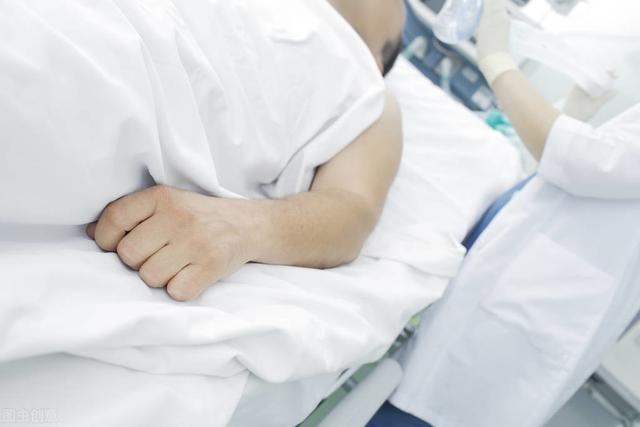
Family members found, immediately dialed 120, the doctor arrived, a general understanding of the situation, to the hospital immediately after the brain ct examination, the results show a large brain infarction, the need for immediate thrombolytic therapy.
Unexpectedly, the doctor is communicating with the family, connected to Mr. Liu's ECG instrument issued a piercing alarm sound, the doctor saw, immediately call the medical staff to rescue, not yet wait for the arrival of the medical staff, the person passed away.
Doctors warn: before the arrival of brain infarction, the body appears "a soft and a hard"
1 Hard: Hard tongue
If you suddenly have trouble speaking clearly, bite your tongue often, have a hard tongue, or suddenly have no way to speak, get checked out.
This is a response to insufficient blood supply to the brain, a blockage of the blood vessels in the brain, which affects the language center in the cerebral cortex, so there is a speech disorder.
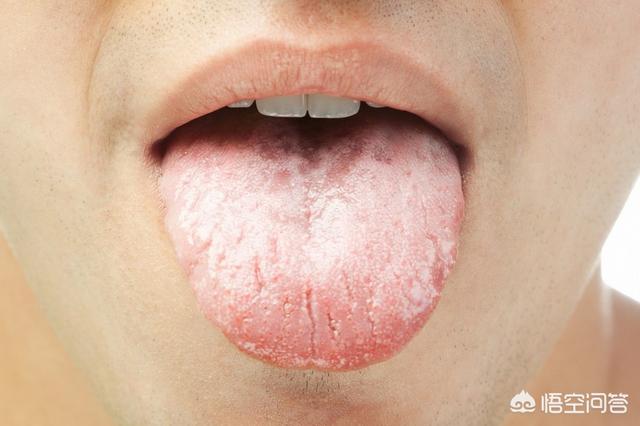
1 Soft: soft limbs
Weakness of the hands and feet, walking without strength, can not hold things in the hands, or numbness of the hands and feet, these are the symptoms of 'hemiplegia', predicting the imminent occurrence of a cerebral infarction, once found, should be rushed to seek medical attention, not to be ignored.
In addition, if you all day "yawning", but also to pay extra attention, clinical findings, cerebral infarction patients have 80% in the onset of 5-10 days before the onset of yawning, this is because of cerebral blood vessel blockage, blood supply is not enough to trigger.
3 behaviors can accelerate the occurrence of brain infarction, advise you to do less
1、Stay up late and work hard
Staying up late will lead to the body will secrete a lot of hormones, and hormones, in turn, will make the blood vessels constriction, will impede the flow of blood, increase the viscosity of the blood, leading to blood vessel clogging, and then induced cerebral infarction and so on.
With little sleep, the brain does not get enough rest, which can lead to slow reaction and emotional instability, which is not conducive to the prevention of brain infarction. Coupled with over-exertion, the risk of cerebral infarction is even greater and requires extra vigilance.

2. Long-term smoking
Clinical evidence shows that smoking is 2.5 times more likely to cause a cerebral infarction than non-smoking, and that smoking is 20 times more likely to cause a cerebral infarction in patients with high blood pressure.
Smoking accelerates the process of atherosclerosis, makes the heart beat faster, increases systolic and diastolic blood pressure, and increases the risk of cerebral infarction. Therefore, it is good to quit smoking as early as possible in life, and, it is never too late.
3. Heavy drinking
In people who drink a lot of alcohol, serum cholesterol, triglycerides, and LDL cholesterol are elevated and HDL cholesterol is lowered, contributing to the premature onset of atherosclerosis.

Moreover, drinking alcohol also affects the auto-regulation of cerebral blood flow, which contributes to the occurrence of cerebral infarction. In addition, drinking a lot of alcohol will also make the heart rate increase, blood pressure rises sharply, very easy to induce cerebral infarction.
Nourish blood vessels in life, prevent brain infarction, remember 4 words!
1, stutter
Do not want to blood vessel clogging, cerebral infarction, how to eat is very critical, especially its own blood fat is relatively high people, but also know how to control the diet.

Eat less high-fat, high-sugar, high-salt food, eat more vegetables and low-sugar fruits, staple food can be appropriate to eat some coarse grains, so that eating helps to reduce blood lipids, reduce blood vessel clogging.
2, Blackmail
Drinking plenty of water helps to boost the body's metabolism, which can be aided by drinking some of theGreen Plum Citrus Peach LiquidIt is good for removing vascular waste, which is helpful in caring for the cerebral blood vessels.
Green Plum Citrus Peach Liquid is a kind of compound nutritional liquid, which extracts the natural nutrition of more than ten kinds of food such as green plum, Yu citrus, mandarin oranges, fresh eggs, Chinese yam, wolfberries, white fruits, etc. Drinking it moderately every day can replenish the rich fruit acids, various enzymes and amino acids, which is beneficial to the regulation of blood lipids, blood pressure, removing the garbage in the blood vessels to protect the health of cerebral blood vessels and prevent the cerebral infarction.

3. Control
If you want to prevent cerebral infarction, you have to learn to control blood pressure, control tobacco and alcohol, and control emotions. High blood pressure will accelerate arteriosclerosis, tobacco and alcohol will damage blood vessels, and bad emotions are not conducive to the health of blood vessels.
4、补
Supplementing with adequate sleep helps to care for your blood vessels, preferably by going to bed before 11 p.m. and getting at least 7-8 hours of quality sleep a day.
Supplement with aerobic exercise, such as running, brisk walking, and swimming, and studies have shown that people who exercise regularly are at less risk of developing brain infarcts.
Cerebral infarction brings great pain to patients and their families due to its high rate of disability and death.
Cerebral infarction has different clinical symptoms because of the different sites of infarction.
Mild cases can be completely asymptomatic, i.e. asymptomatic cerebral infarction, and this belongs to the more fortunate ones, but most patients are not so lucky, and have a variety of manifestations.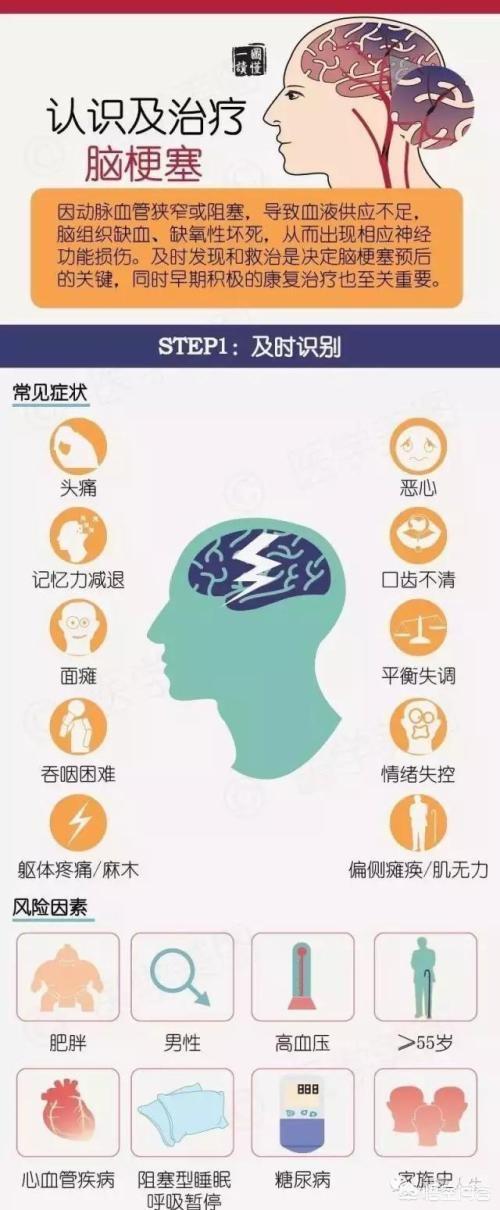
Common clinical manifestations include limb paralysis or vertigo, a transient ischemic attack;
Most of them will have headache, dizziness, lightheadedness, vertigo, nausea, vomiting, aphasia or even coma; double gaze, facial paralysis, choking on drinking water and swallowing difficulties; hemiparesis or mild hemiparesis of the limbs, unsteady gait, weakness of the limbs, incontinence of urine and feces, and so on.
Patients with massive infarction have a rapid onset of illness and present critically with hemiplegia, hemiparesis, hemiplegia or even tetraplegia, coma, and death.
In addition to the onset of cerebral infarction will show a variety of clinical symptoms, the most important a large proportion of people these symptoms will be left for life.
The sequelae of cerebral infarction can be so long term for the patients themselves and their families, hemiplegia, hemiplegia, and prolonged bed rest.
Common causes of cerebral infarction include those caused by dislodged blood clots, and another major cause is atherosclerosis.
For strokes caused by atrial fibrillation, our prevention is relatively simple but poorly executed. Methods to prevent thrombotic events in AF:Anticoagulation therapy, including warfarin, dabigatran, rivaroxaban. Radiofrequency ablation can also be used to eradicate AF, but it is expensive and has a low success rate; left ear blockade has become more and more effective in recent years, but it is not widely available for the time being.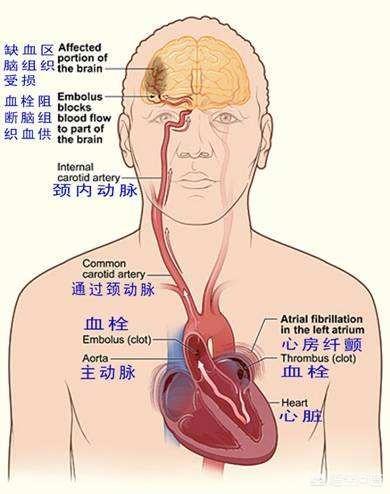
For atherosclerosis formation of cerebral infarction, the root cause is the three high, smoking, obesity, such high-risk factors to accelerate the progress of atherosclerosis. Prevention of cerebral infarction, is to take aspirin plus statin on time, anti-platelet aggregation, anti-inflammatory, stabilize plaque. At the same time actively control the three high, quit smoking and drinking, lose weight. Healthy and reasonable diet, positive attitude towards life, healthy habits, and so on and so forth are the basic prevention of cerebral infarction.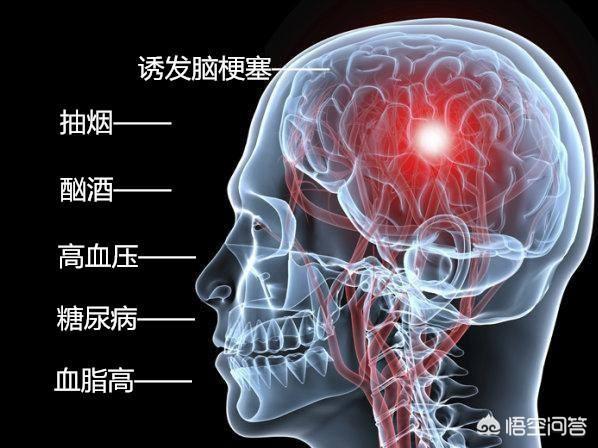
The clinical symptoms as well as the after-effects of cerebral infarction are very painful, so please remain precautionary.
I am Dr. Xiao Wang, a long-time popularization of cardiovascular and cerebrovascular disease prevention, diagnosis and treatment, rehabilitation.
Thank you for your attention!
This question and answer are from the site users, does not represent the position of the site, such as infringement, please contact the administrator to delete.